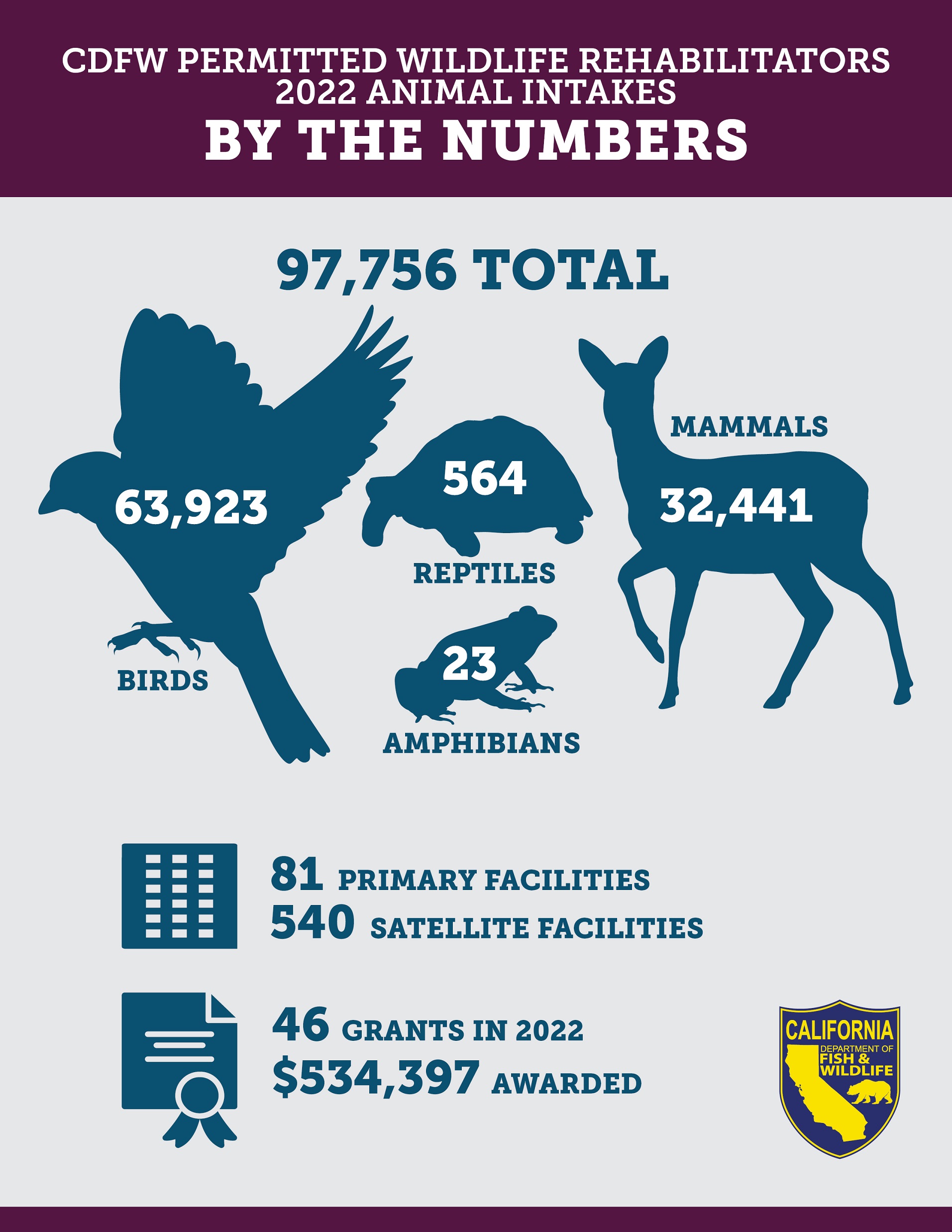Annual Snapshot
Permitted wildlife rehabilitators in California strive promote excellence, integrity, and professionalism in the field of wildlife rehabilitation. Highly specialized training and experience are required to properly care for and treat sick, injured, or orphaned wildlife. Every year, thousands of wildlife are treated at one of the many wildlife rehabilitation facilities that are operated by wildlife rehabilitators, their staff, and volunteers year-round to provide this service. By the numbers (2022):
- 97,756 wild animal intakes
- 63,923 birds
- 32,441 mammals
- 564 reptiles, 23 amphibians
- 81 wildlife rehabilitation facilities, ~540 satellite facilities
- 46 Native Wildlife Rehabilitation Grants, $534,397 awarded

How To Contribute
- Support a local Wildlife Rehabilitator - Contact a local wildlife rehabilitation facility to see how to best support their work. Many wildlife rehabilitators accept donations, including blankets, food, and supplies. Some wildlife rehabilitators have year-round and/or seasonal volunteer opportunities, such as to help with phone lines, laundry, food preparation, enclosure cleaning, and possibly, animal care.
- California Native Wildlife Rehabilitation Voluntary Tax Contribution Fund - On your State Income Tax Form 540, use Line 439 to provide a tax-deductible donation which 100% funds the CDFW Native Wildlife Rehabilitation Grants Program. This grant program has awarded nearly $2 million dollars to local wildlife rehabilitation facilities statewide.
- Become a Wildlife Rehabilitator - Interested in becoming a wildlife rehabilitator? Proper care of wildlife in distress requires special knowledge, training, and experience not possessed by the general public. There are several steps to consider.
- Is there a "need" for a new wildlife rehabilitation facility in your local area?
- Are you able to obtain two letters of need from nearby permitted facilities?
- Do you have the minimum required experience (400 hours)?
- Would a new facility or satellite facility violate any city of county zoning ordinances?
- Contact CDFW for further information at Rehabwildlife@wildlife.ca.gov
News
Interested in stories about wildlife rehabilitators, their facilities, and the animals they rehabilitate for release to the wild? Read more!